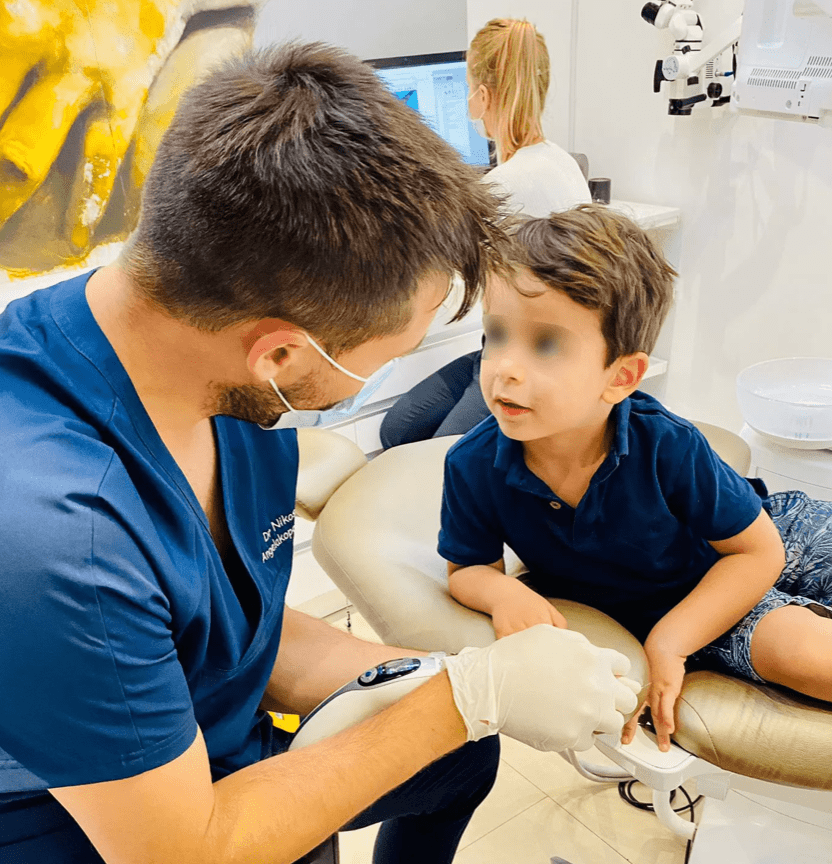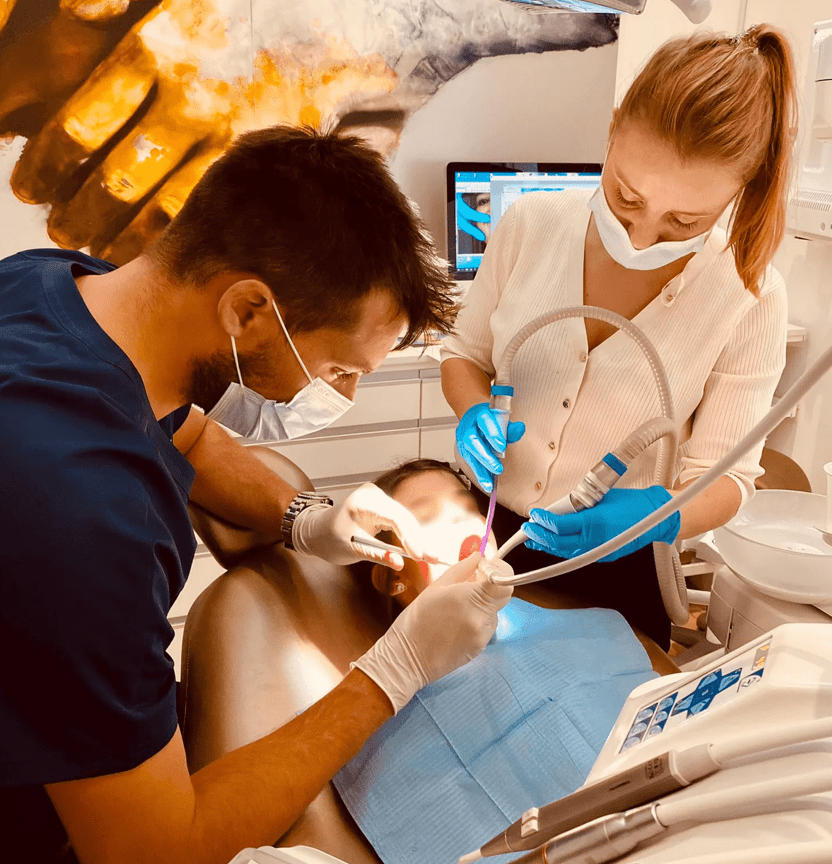Gnashing of teeth

For some children, what we call teeth grinding occurs during the day. However, grinding during sleep is more known among kids.
The scientific name is bruxism.
It can lead to a wide range of dental concerns, depending on the frequency of teeth grinding, its intensity and the causes. Let’s just say that a wide range of psychological and physical factors can create what we dentists call bruxism in your child. These include jaw misalignment, malocclusion, stress and head trauma, all of which are important factors that are considered to contribute to the problem of bruxism in your child!
Teeth grinding? Is your child a teeth grinder ?
You tiptoe into your sleeping child’s room to give him one last goodnight kiss, and you expect to hear the sound of peaceful, quiet breathing.
Instead, you hear his teeth grinding together, he looks distressed and you don’t know what to do, or even if it’s a problem.
Why does your child grind his teeth ?
No one exactly knows why it happens, although studies have been done to try to figure it out. Few ones, believe in a reaction to the pain of another condition, such as an earache or teething; clenching and grinding the teeth may help relieve the pain. It may even be that the child’s jaw is misaligned and this causes the grinding. Stress can also be a major cause; when children feel nervous, tense or angry, they may clench their jaws or grind their teeth.
Some common stressors for children are :
- School-related problems: tests, homework, projects.
- Personal problems: changes in daily life such as divorce, the birth of a sibling, moving to a new home, pressure from friends, bullying, etc.
- Medical problems: fpr example children with cerebral palsy or those on certain medications
IS TEETH GRINDING DANGEROUS TO YOUR CHILD’S TEETH OR JAW ?
Teeth grinding or bruxism can go unnoticed without causing any damage and eventually fades away. However, it can sometimes cause minor discomfort, such as a headache or earache.
However, in more serious cases, teeth grinding can lead to more serious problems, including:
- Tooth enamel wear
- Chipped, fractured or lost teeth
- Sensitivity to heat and cold
- Facial pain and jaw problems, such as temporomandibular joint (TMJ) disease
HOW CAN WE TREAT TEETH GRINDING ?
It is impossible to answer this question without seeing your child in our clinic in Geneva! A mouth guard that your child will wear at night to stop the grinding. If you think bruxism is due to stress, talk to your child’s pediatrician about ways to reduce stress; this may include counseling, exercises or other methods.
HERE ARE SOME OTHER TIPS FROM OUR EXPERIENCE IN CHILDREN’S DENTISTRY:
- Make sure your child avoids caffeinated foods and beverages, such as Coca-Cola and other sodas that have been popular for years.
- Encourage your child not to chew pens or pencils, and perhaps limit and/or eliminate chewing gum.
- Teach your child to relax his or her jaw: If you notice that he or she is clenching his or her teeth. Moreover, he or she can put his or her tongue between his or her front teeth; this immediately relaxes the jaw.
If you are concerned about your child’s grinding and clenching of teeth, we will provide a consultation.
Do you want to learn more about how we create wonderful, healthy, happy, cavity-free smiles?
Stop by the office for a visit, or call us at 022 310 50 77 to arrange a consultation with our dentists for your child!
Taking time to listen to my patient, especially if it is a child, is the fundamental basis of the relationship of trust that makes a successful dental care!











